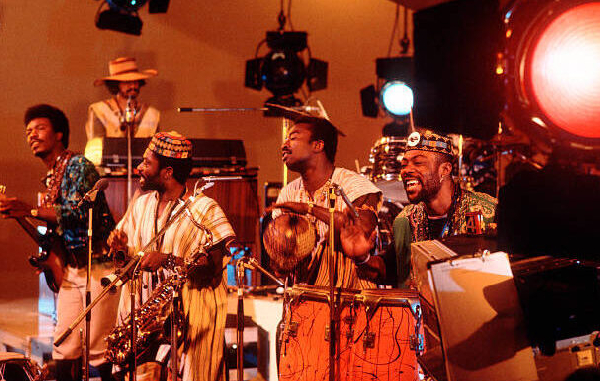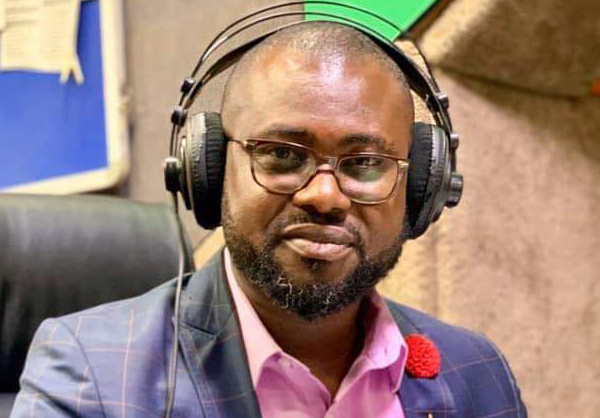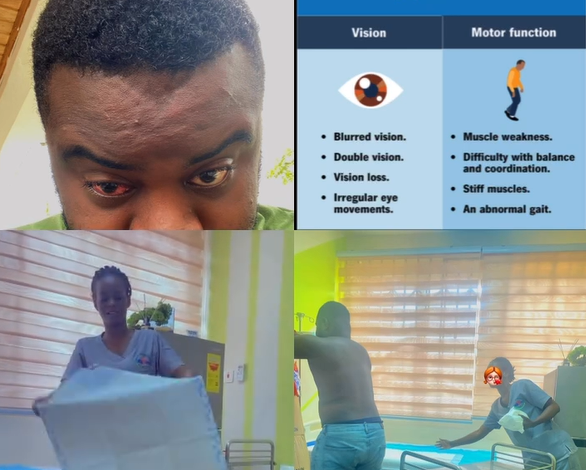Osibisa: The famous British-Caribbean-Afro band that was formed by a Ghanaian building inspector

In a small park in the heart of London in 1969, a young Ghanaian man formed a band that would go on to become the first African band to gain global recognition, pioneering a sound that fused traditional African music with rock, jazz, and funk.
Teddy Osei who studied draughtsmanship and worked as a building inspector in Ghana had gone to the UK to study architecture and continue his profession but that all changed when he found himself in ‘Swinging London’ where a lively club and dance hall scene dominated by West African and Caribbean musicians had emerged.
He instead enrolled at the Eric Gilder School of Music in Oxford Street with the help of a Ghana government scholarship.
Born in Kumasi in 1937, Teddy Osei was introduced to musical instruments while still a child.
He began to play the saxophone while attempting to create a band with his college friends in the coastal city of Sekondi.
Before leaving Ghana, he had created a band called “The Comets” and they enjoyed brief popularity before Osei travelled to London in 1962.
His passion for music never died and in 1969, Osibisa was formed.
Osibisa’s music is known for its high-energy performances and innovative fusion of styles, which helped them break into the global mainstream during the 1970s.
“We were all living in Finsbury Park, and that’s where we started rehearsing. Wendell Richardson came in one day, liked what he heard, and came back the next day. That was how we began experimenting with a unique sound,” Teddy Osei narrated the band’s origins in an interview with Nigerian TV station Arise TV.
The band’s line-up was a melting pot of talent from different corners of the world.
Alongside Osei were musicians like Spartacus R, a West Indian with an unforgettable hairstyle; Wendell Richardson from the Carribeans and Remi Kabaka, a drummer of legendary status.
Osibisa wasn’t just any band; they became the first all-Black group in London, something Teddy noted with pride. The blend of African, Caribbean, and Western influences helped the band develop a truly distinct sound, rich with cultural diversity.
As the band grew, so did its impact. Wendell Richardson, one of the band’s prominent members, reflected on how the shift in their style allowed them to reach new heights.
“Jerry Brown, our management, suggested we focus more on vocal songs. That’s when we started generating hits, and I had to focus more on becoming not just a good guitar player but a great singer.”
Wendell’s determination paid off, and his electrifying voice became an integral part of Osibisa’s success.
Osibisa wasn’t just a band that people listened to, they were a spectacle.
Their live performances were basically high-energy shows that could stir up mass hysteria among the audience.
Teddy reflected on what set them apart, saying, “Rock musicians would just come on stage and play, but we brought a whole life sound, ideas, and meaning to the stage. That’s what got everybody interested.”
Their influence stretched across continents, with their music resonating not just in Europe and America, but even in places like India, where Western music was still a novelty.
The energy they brought was contagious, making their concerts unforgettable experiences.
Despite their success, Osibisa experienced its share of heartache,including the deaths of people like Spartacus R, and Mac Tonto.
These tragedies affected the band deeply, but Teddy never forgot their contributions to Osibisa’s legacy.
“People come in and sadly they leave us. But the story continues. Of course, all these famous guys have been there. They contributed to the success of the Osibisa sound, so we should all appreciate all of them. And we always pray that their spirit is lifted high and high, wherever they are,” he said.
Through it all, the band persisted, evolving with time but staying true to their roots.
Osibisa’s ability to adapt and develop new sounds is what kept them relevant for decades.
Osibisa’s biggest achievement, according to Wendell, it’s the determination of the band:
“I think playing the music. Keep on playing the music regardless of what happened and of course, despite the experiences of losing some members of Osibisa, we managed to move on, and quite frankly, we still managed to develop better music as we go along,” he said.
From Finsbury Park to stages around the world, Osibisa’s music and spirit continue to inspire new generations of artistes, showcasing the power of African music on the global stage.
See the interview with Teddy Osei and Wendell Richardson below:
See some of Osibisa‘s hit songs below:
Source: www.ghanaweb.com





